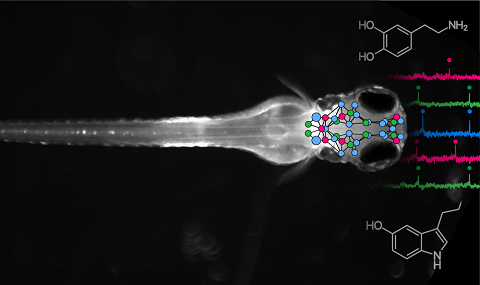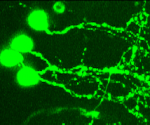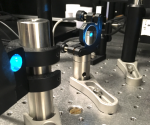Serotonin & psychedelics
Animals adapt their behaviors according to their past experiences and changes in the surrounding environment. This adaptation could be useful but also harmful. We investigate the behavioral roles and computational principles of how the serotonin system in the brain controls adaptive and maladaptive behaviors.
We recently extended our approach to the study of psychedelics and anxiety-related behaviors, which stimulate serotonin pathways in the brain.





